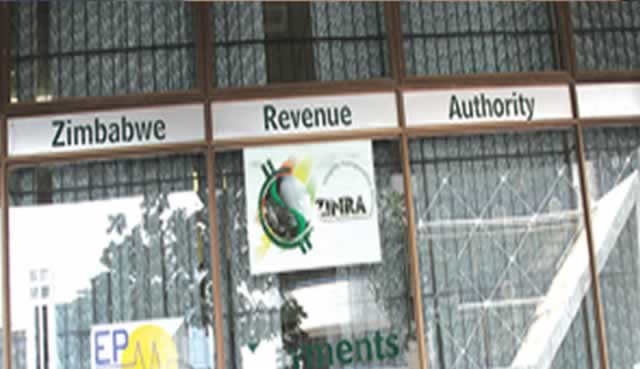Revenue rises after poor first quarter

Walter Muchinguri Assistant Business Editor—
Although gross revenue collection for the first half of the year fell 9,31 percent to $1,65 billion compared to the prior period Zimra reports a 10,87 percent improvement in revenue collected during the second quarter of the year, which amounted to $866,96 million, compared to $782 million collected in the first quarter. The total revenue in both quarters was 6,03 percent below the target of $1,75 billion according to the revenue performance report issued by Zimra
Zimra board chairperson Mrs Willia Bonyongwe attributed the improvement in revenue collected to measures being implemented by the authority. “Since the beginning of the year, the Zimbabwe Revenue Authority (Zimra) has been seized with the matter of improving operational efficiency and effectiveness, eradicating corruption and increasing the level of compliance amongst the taxpayers.
“The efforts are beginning to bear fruit as demonstrated by the gradual improvement in the revenue performance over the first half of the year which was more evident towards the end of the second quarter of year. The impetus is expected to continue into the second half of the year despite the forecast decline in economic growth,” she said.
Total refunds paid during the first half of the year stood at $98,73 million, comprising Value Added Tax (VAT) (99,21 percent), Customs Duty (0,47 percent) and Non-Tax Revenue (0,32 percent).
This resulted in net revenue collections for the period declining to $1,55 billion, compared to $1,66 billion for the same period in 2015. The bulk of the revenue for H1 was realised from Individual Tax, which brought in $345,1 million representing 22,95 percent followed by Excise Duty at $313,6 representing 20,24 percent.
VAT on Local Sales at $284,5 contributed 18,37 percent while VAT on imports at $169,9 contributed 10,97 percent. Mrs Bonyongwe said the tax debt rose by 33,50 percent to $2,63 billion by the end of H1.
“Of this, $1,45 billion was the principal, while interest amounted to $641,51 million and penalties amounted to $542,63 million. In terms of the origin mix, 14,50 percent emanated from parastatals, 8,58 percent from councils and municipalities, and the remaining 76,92 percent was from private entities.
“Over 70 percent of the debtors are still operational and Zimra is engaging them to ensure that current obligations are met, and at the same time arranging for the repayment of the old debt. Those with debts are advised to approach Zimra offices for the way forward,” she said.
At least four revenue heads DFIR (tax on dividends, interest, fees and remittances) VAT on Local Sales, Withholding Tax on Contracts and Other Indirect Taxes performed better during the period under review compared to the same period last year. “VAT on imports marginally surpassed the set target for H1 but going forward, this should be dampened by the blend measures to curb imports and revive local industrial production.
“These measures are the reason why imports fell by 18 percent during the period under review. The revenue head is expected to decline in performance but it is hoped that the losses under this revenue head will be compensated by other measures designed to stimulate the economy which would have positive impact on Local VAT, PAYE and Corporate Tax, among others,” she said.
“Notwithstanding the depressed economic environment, VAT on Local Sales for H1:2016 was 38,82 percent above prior year. This significant rise is attributable to the benefits of automation, specifically the efficiency arising from finalising the Fiscalisation Project and the roll out of the Tax Management System (TMS).
“Full automation of Zimra systems is expected to improve revenue inflows and compliance across all tax heads. It is also expected to make it more difficult to commit fraud or engage in corruption.”
Going forward, Mrs Bonyongwe said Zimra will be speeding up the automation process, connecting in real time the fiscal devices which were installed from 2011, and linking them to the Zimra servers by September this year.
She added that the roll out of the Tax Management System has also gained impetus and more and more companies are being linked directly to the TMS devices, or having their servers directly linked to Zimra.
“The roll out of the fiscal gadgets will gather momentum in H2:2016. The legislation will be changed to obligate everyone to use fiscal gadgets and produce fiscal receipts.
“This will necessitate improved connectivity throughout the country, and in this regard Zimra supports initiatives by the Ministry of Information Communication Technology, Postal and Courier Services to promote sharing of infrastructure amongst players in the telecommunications industry.
“The Electronic Filing Programme is also progressing well. The pace of automation, given the capital constraints, is satisfactory. However, it is regrettable that due to bureaucracy Zimra missed the deadline for implementing an in-house Cargo Tracking System at the end of June,” she said.
Mrs Bonyongwe said they were happy with the quality of data being processed through the automation systems which shows the level of honesty/dishonesty in the declarations filed by taxpayers.
“Quite a significant number of people consistently under-declare their revenue returns and are now faced with huge bills. Yet others tend to customarily cut deals with Zimra officials at the border or in the offices.
“Unfortunately, this is working out to be a very costly endeavour. Zimra is catching up with all these people and they will have to pay what is due to Zimra, and probably with penalties and interest. The results of an audit for imported vehicles revealed grave under-declarations and this will be broadened to other imports and even direct tax payments. Zimra is obligated to make good any such prejudice and will apply the law. The law will equally be applied to Zimra officers who will be found on the wrong side,” she said.











Comments